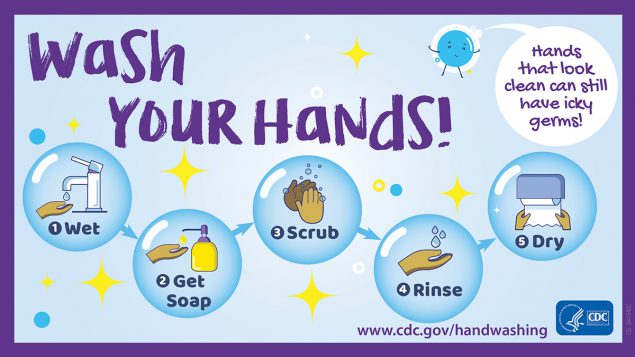What is Epidemiology?
Epidemiology is the study of health and illness in the community and is considered the foundation of public health.
At GCHD, the Division of Epidemiology tracks infectious diseases, investigates disease outbreaks, educates medical providers and the general public about illness in our community, and most importantly, teaches how to prevent the spread of these diseases.
Most diseases do not occur randomly in groups of people. They occur as the result of the combined effect of risk factors, which could be social, environmental, behavioral, genetic, individual, etc. Epidemiologists study the patterns of disease occurrence in populations and attempt to control the factors that put people at risk.
What are infectious diseases?
An infectious disease is any illness that can be spread from one person to another. Many people may think that such diseases no longer exist in this country but that is not true. Infectious diseases include everything from the very uncommon, such as ebola virus, to the every day common cold.
Additional Resources:
WVDHHR -
Division of Infectious Disease Epidemiology
Here are six easy steps you can take to help protect yourself and your loved ones from getting sick:

1. Wash your hands!
Wash your hands after you go to the bathroom, wash your hands before you cook, wash your hands before you eat, wash your hands before you hold a baby, wash your hands after changing a diaper, wash your hands after handling money, wash your hands after touching animals, wash your hands, wash your hands, and wash your hands.
2. Cook food thoroughly, especially poultry.
Food can carry lots of harmful bacteria that can make you very sick, but being sure to cook it thoroughly will kill the bacteria and keep you healthy.
3. Wash fruits and vegetables.
Just like meat, fruits and vegetables can carry harmful bacteria as well. Be sure to was them thoroughly, especially those that you plan to eat raw or uncooked.
4. Clean.
Use anti-bacterial sprays or wipes, such as Lysol or Clorox, and clean common surfaces around your home such as countertops, door knobs, toilets, and faucets. Bacteria and viruses can live on surfaces anywhere from a couple of minutes to days on end. A little clean up can go a long way in preventing illness.
5. Stay home if you are sick!
If you’re feeling ill, stay home from work and other activities because you may cause others to get sick as well. A common cold that is just an inconvenience for you could be a life-threatening illness for an infant, an elderly person, or anyone with an underlying health condition. Do yourself, and everyone else, a favor and stay home until you feel better!
6. Get Vaccinated
Vaccinations exist for all kinds of different illnesses and will not only help protect yourself from getting ill, but it will help protect those around you as well. Vaccines are quick, easy, and very safe. Many vaccines are given in a single dose, while others may require additional doses or a booster later on in life. Some vaccines can provide lifelong protection against a disease, such as the hepatitis B vaccine, however others may only provide temporary protection such as the influenza vaccine, aka the flu shot.